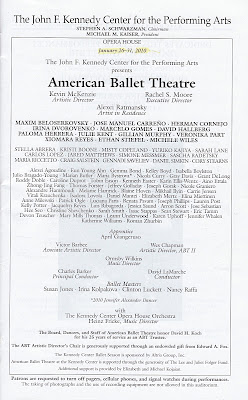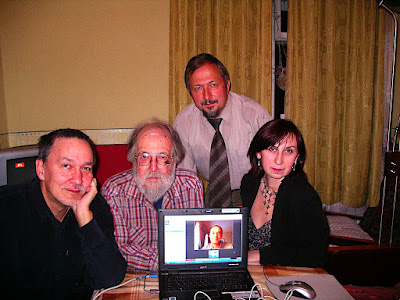This time, after the usual review of the latest cultural happenings in Russia in general and in St. Petersburg in particular, the conversation involved several topics:
- Is it necessary for an artist to consider himself a genius (not necessarily in a public way but at last internally) in order to realize his creative potential? Yes for some (Zhukovsky, Tchaikovsky) but No for others (Shostakovitch)
- How, in the world over-saturated with information, do we choose what to listen to and what to read? Friends' recommendations? Reviews of the critics we trust?
- In his context A.G. asserted the value of a printed book/score as an artifact whose physical attributes can communicate some essential aspects of the intellectual work it contains. He said that its purely electronic downloadable manifestation is somewhat impoverished because it lacks those physical attributes. He claimed that he could tell certain things about a book without even opening it. To check his claim, Slava gave him a book he was carrying and challenged him to assess it. A.G. took the book in his hands and without looking at its front or ever opening it said that it contained some engaging stories. It turned out that this was a history book with some interesting anecdotes. Go figure…
- How do we know that the artists who a tradition says are the pillars of culture are really who it says they are? What if we are just conditioned from the childhood to admire the music of those who were accidentally/arbitrarily selected by a certain elite? But then there are consensuses: it is hardly an accident that Chopin was championed by the likes of Liszt and Mendelssohn
- How do we know that equally talented composers were not forgotten because of vagaries of their fate? A.G. suggested that one of the future sessions could be dedicated to the “forgotten” and “semi-forgotten” composers (Fomin, Rubinstein, Mosolov, Lurye)
- What role does an interpreter/performer play in making certain composers famous?
- Does quantity translate into quality when it comes to listening: if one has five sets of all 100+ Haydn's symphonies does this make him a more appreciative and discerning listener?
- Kasimkhan mentioned in passing Scarlatti as an example of the second-tier composer but I said that the recent ABT performance of Alexei Ratmansky's Seven Sonatas with a pianist on stage playing seven sonatas by Domenico Scarlatti made me reevaluate Scarlatti's music as being deep, contemplative, and transparently simple, in a good sense.
 |  |
Thank god (and those Estonian guys) for Skype!

No comments:
Post a Comment